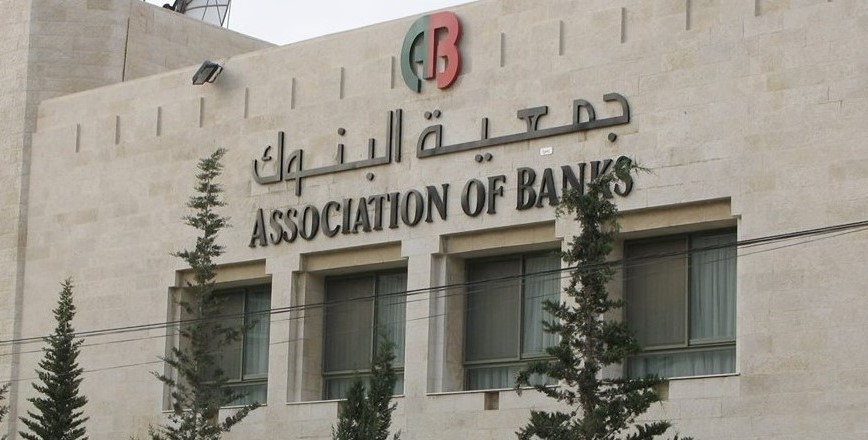
ABJ participated in a discussion session organized by the European Bank for Reconstruction and Development (EBRD) on “Supporting Women’s Access to Finance in a Post-Covid-19 World” in cooperation with the Central Bank of Jordan, with the attendance of approximately 140 people, on Wednesday, 7 /4/2021 via video communication technology (Zoom).
Dr. Ziad Fariz, Governor of the Central Bank, said during his opening speech to the discussion session that the Corona pandemic affected all segments of society, especially females, with the increase in their domestic responsibilities. Fariz referred to the Central Bank’s role of in supporting and assisting women during the pandemic, referring at the same time to the strategy of financial inclusion and its main axis which includes women employment, and increasing their contribution to the local economy. Fariz also pointed to the Corona pandemic impact on unemployment levels in the Kingdom, specifically its increase among females, adding that strengthening women’s role economically will increase fast and deep recovery. He also referred to studies indicating that enhancing women’s role in the production process will contribute to accelerating growth pace by approximately 47%. Fariz pointed out to the importance of women’s economic empowerment which enables them to earn income, thus, their role becomes more effective. Fariz touched on the financial culture issue, as a large part of the programs and curricula were devoted to educating women financially as well as the opportunities they can create. This topic was of top priority among the topics raised in the financial inclusion plan and the agenda related to its meetings. He indicated that the number of borrowers is estimated at 220 thousand women out of 1.1 million who obtained retail loans. As for deposits, there are more than 1.3 million women depositing out of 3.6 million at a rate of 35%. Fariz also indicated that about 4 million Dinars, with a total of 126 projects, have been directed to women during the Corona pandemic. He pointed out that these numbers are considered modest, and he touched on the aspect of empowering women in the decision-making process stressing the continuous encouragement of women’s presence in decision-making centers and boards of directors and the impact this participation has on increasing profitability and growth in banks and public joint-stock companies alike. He added that more than 51% of the Central Bank employees are women, and that 33% occupy positions in the senior management. Fariz concluded his speech by talking about the ongoing preparations to launch a project in partnership with microfinance companies to allocate 20 million Dinars as a loan from the World Bank to be re-lending to these companies in cooperation with the Central Bank of Jordan at an interest rate of 5% for comfortable and reasonable grace periods with the guarantee of the Jordan Loan Guarantee Company.
For his part, Bassem Khalil Al-Salem, Chairman of the Board of Directors of the Association of Banks, stressed during his speech at the opening of the session the importance of the effective role of women financial inclusion, adding that the guarantees issue is one of the most important challenges facing women and must be solved and taken into consideration. He also pointed out that the decision-making process must be designed in a way that ensures women’s participation, and it should include facilitating access to finance. He said that the percentage of women’s repayment of loans is generally higher than that of males, and that women are among the groups that save better.
Al-Salem added that the Corona pandemic impact was on all sectors, on both men and women, stressing the need to work to reduce unemployment rates by supporting small and medium enterprises in which a large number of women are involved, in conjunction with the role of the financial sector in supporting women’s empowerment by providing products and services facilitating women’s empowerment in society and the labor market, as women have a tangible role in solving unemployment problems and increasing economic growth. Al-Salem indicated that ABJ will, during the coming period, undertake an initiative to promote financial education for women and youth, which in turn will increase women’s financial inclusion, and work to find solutions to mitigate guarantees for women-led projects as the risks may be lower and the percentage of non-performing loans will be lower as well. With regard to the figures related to women’s benefit from the Central Bank’s program to support small and medium-sized companies affected by the Corona pandemic, he indicated that these numbers are considered modest, as they amounted to about 4 million Dinars out of 500 million Dinars stressing that the banking sector, in cooperation with the Central Bank of Jordan, will work on increasing the amount of these loans.
For his part, the Director General of ABJ, Dr. Maher Al-Mahrouq, during his participation in one of the session’s topics, pointed to two main axes or impressions. The first is that access to commercial banks may help start-up companies run by women, as the procedures and steps followed by commercial banks are advanced and help Startups get successful projects. Al-Mahrouq also touched on the issue of non-financial recommendations regarding women’s programs offered by banks, pointing out that the success of these programs is not only limited to financing, but also to non-financial services. Al-Mahrouq also drew attention to an important aspect, which is the failure of a number of start-up companies during the early years, which is related to administrative problems, not just access to financing. The other aspect pointed out by Al-Mahrouq is that women prefer obtaining financing from microfinance companies to commercial banks, due to the obstacles they face in referring to banks. He explained that the project study and details cause some delays compared to other financing companies. He also referred to the measures taken by the ABJ to find a financial inclusion platform. This topic was discussed with a number of international organizations including the materials that will be included in such a platform which can be accessed by both youth and women. This stems from the association’s role in supporting women’s participation and enabling them to access the banking sector. Al-Mahrouq concluded his participation by addressing the issue of women’s economic participation which does not exceed 14% in the Jordanian economy; a modest percentage given the average in the Middle East noting the positive relationship between access to finance and women’s economic participation.
For her part, Mrs. Nadia Al-Saeed, General Manager of Al-Ittihad Bank, said during her participation in the session that women’s education rate is 88% (the rate of enrollment in secondary schools) in Jordan, which is a high percentage compared to surrounding or international countries alike, noting at the same time that women’s economic contribution is low, which amounts to 14% locally and 24% in the Middle East. Al-Saeed added that Al-Ettihad Bank decided to be part of the solution and act accordingly, as it supports women’s empowerment and its staff consists of a total of 50% females, 20% of women are in managerial positions. The Bank’s policies are based on gender equality in all transactions and procedures which contributed to the Bank’s success. She added that the bank was one of the first banks to introduce a special program for women, the Shurooq program for women in 2014, as it contributes to empowering women and helping them achieve their goals and ambitions. In addition to the bank’s partnership with a number of key players in the economic system related to women’s empowerment, such as the Businesswomen’s Association, the Business and Professional Women Club Association, and others. She also addressed the need to confront unemployment in Jordan, especially as it is high among females compared to males noting that the Corona pandemic has added an additional burden on women besides unemployment, such as the growing domestic responsibilities and the problem of distance education to name a few.





